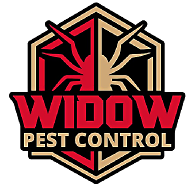Spider
Treatment Services
Perhaps more species of potentially dangerous invertebrates inhabit Arizona than any other state in the United States. Spiders are certainly the most familiar of these as they easily gain access to indoor spaces.
Spiders are venomous. Spiders bite to deliver their venom. Two criteria are generally considered when determining whether a species of spider is dangerous to humans: whether it can deliver a bite to break the skin, and does its venom cause any serious effects on humans? Spider protocol is similar to scorpion concerns, be aware of potential areas where they lurk, avoid contact and seek a professional pest control specialist such as Widow if you have a concern.
Treatments
Spiders are more than a nuisance. We will eradicate these pests to your satisfaction. Some notable enemies of your interior space or outdoor living areas are venomous and dangerous such as the Black Widow and Brown Spider varieties common in the Southwest. If your concern is nuisance spiders, or if you have identified a dangerous invasive species, please allow us to evaluate your surroundings and help you feel safe in your environment.
Other Spider Concerns
Spiders are primarily predators on other invertebrates. Larger species or those with very strong webs occasionally take small vertebrates. As a general rule spiders that use webs to capture prey have poor vision, while those that hunt actively (wolf and jumping spiders) may have much better navigation abilities. Tarantulas however, have poor vision and use mechanoreceptors (special structures on their bodies) to locate prey.
Two varieties in Arizona are generally considered dangerous to humans: Black Widow (Latrodectus spp.) and Brown spiders (Loxoceles spp.). There are about five species of brown spiders and one species of black widow known from Arizona. Brown spider bites may go undetected for long periods of time (in excess of 8 hours) and the perpetrator is seldom seen. Local pain and swelling may ensue and eventually result in a necrotic ulcer that is slow to heal and may require reconstructive efforts.
623-878-4384
Top
